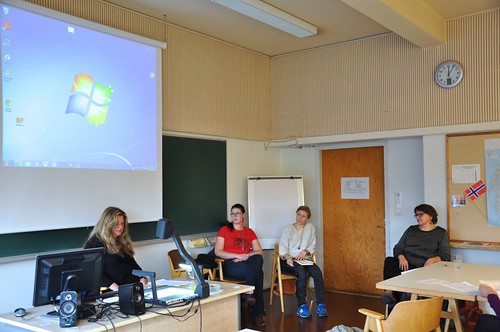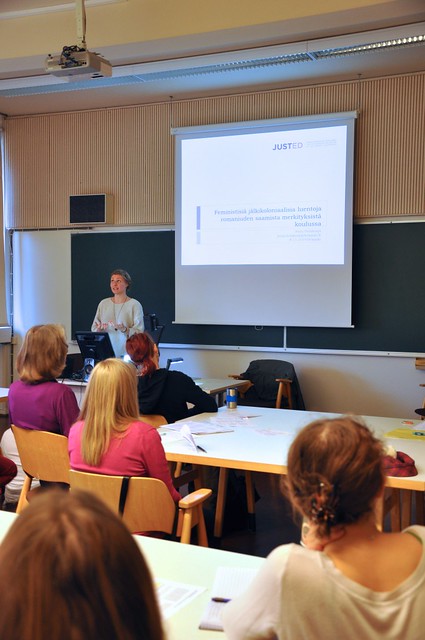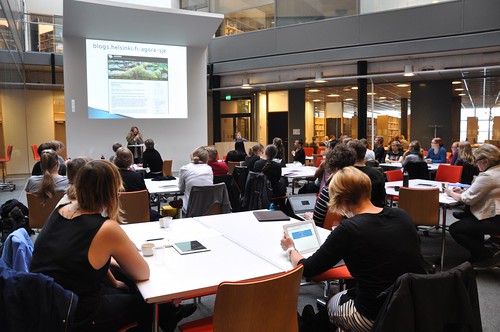
TROUBLING SPECIAL
An ethnographic study on practices of special education and formation of special in the everyday life of lower secondary school
The study focuses on the formation of the conceptions of special in the everyday life of school, especially in the practices of special education and student welfare services. It analyses definitions of special and normal/ordinary in the discursive practices of everyday life. The relationship between normal and deviant is approached as a formation constantly re-built, re-defined and re-conceptualized in the everyday practices of the school. The study is positioned in the fields of sociology of education, cultural studies, gender studies, youth studies and disability studies. Theoretically it draws from feminist poststructuralist theories. Key analytical concepts of the study are subject position, subjectivity and subjectification.
Methodologically the study is ethnographic. A year-long fieldwork took place in one lower secondary school, following the everyday schooling of 9th graders in special education. Data consists mainly of field notes and interviews.
The report is divided into four thematically separate analytical chapters. These focus on (1) school space and spatial practices, (2) definitions of ordinary and special made in the discussions of members of the multidisciplinary student welfare team, (3) discursive practices of the special education teachers and in special education classes, and (4) hierarchies constructed in the student culture, and how students positioned as special negotiate their position and meaning in relation to these hierarchies.
Main results of the study are drawn from these four themes, and how these different dimensions intertwine in the process of defining what and who is special in the school. Special and ordinary were found as very clearly demarcated and fixed in the everyday life of school, and the difference between these positions is both wide and steep. The negative images and stigma connected to special education still dominates everyday sense-making, even if the school culture has also become more sensitive to stigmatization and works to challenge and deconstruct it. The division between special and ordinary is steepest in the student culture. Student culture is very sensitive to the dividing practices and divisions made by the school institution. The special that is formed and reformed in everyday practices and repetitions of the school culture appears as a fixed position with no alternative, defined by cemented cultural meanings. The study suggests that in order to change the division between normal and special and challenge the meanings connected to special, schools needs to look for new ways of explicitly discuss and work on these meanings and the practices producing them.
In Finnish
Reetta Mietolan väitöskirja Hankala erityisyys: Etnografinen tutkimus erityisopetuksen käytännöistä ja erityisyyden muotoutumisesta yläkoulun arjessa tarkastettiin Helsingin yliopistossa 16.8.2014. Tutkimus osoittaa, että erityisyyteen liittyvät negatiiviset merkitykset ovat yhä olemassa koulun arjessa ja erityinen rakentuu suhteessa tavalliseen tai normaaliin selvärajaisesti. Tutkimuksen johtopäätöksenä Mietola esittää, että muutoksen aikaansaamiseksi merkityksistä ja niitä tuottavista käytännöistä tulisi keskustella ja näitä työstää.
Väitöskirja on julkaistu E-thesiksessä.










